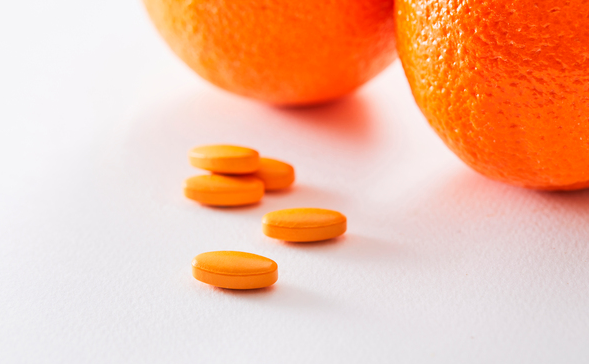
I believe that a high-dose regimen of vitamin C that exceeds the 2,000 mg intake limit set by the National Medical Association is also worth it. For example, if you have a very important test or assignment and you are not sick but are not feeling well due to overwork or stress, a high dose of vitamin C is a great alternative.You can take vitamin C preparations by mouth, but you can also get them intravenously in the hospital. This is because when it is given intravenously, it is injected in large quantities at once and can have a quick effect. For example, if you need 10 grams of vitamin C, you should eat 200 small tangerines. If you take it in the form of nutritional supplements, you will have to take 20 500 mg pills. It's a hassle.
I am opposed to taking a high dose of vitamin C regimen every day. This is because the benefits are small. But sometimes it's worth it. In fact, I've experienced the effects myself, and so have the patients I've seen. For medical solemnists, this may be unpleasant. Some argue that it should be evidence-based and should be written in papers. But how do you quantify everything you feel in your body? To reiterate, it is necessary for modern medicine to recognize the sphere of function. As long as it is medically plausible, has few side effects, and is inexpensive, consumers have the right to choose vitamin C for their health in the realm of food.
However, I oppose the use of high-dose vitamin C therapy to treat diseases such as cancer, heart disease, and high blood pressure. This is because more medical evidence is needed to spread to treatments that are more effective and have fewer side effects than conventional treatments. Of course, this does not mean that patients should not be treated with vitamin C. It's a matter of prudence, but if the patient and the attending physician agree with each other, there is no reason why you can't get it. For the past 20 years, I've been giving high-dose vitamin C intravenously to patients struggling with undiagnosed symptoms. It was given to patients who were unable to eat properly due to chemotherapy, and to patients who had terminal cancer and could no longer receive any treatment in the hospital. In either case, in my prescribing experience, it has nothing to do with indicators such as survival rate, but at least it has helped me maintain good condition and quality of life. If the patient If you are a terminal cancer patient, I think this prescription is meaningful, even if it's just for one day.


![[Vitamin C Episode 3] Vitamin C Megadoses, Does It Work? | Dr. Esther Yeo](http://esther-mall.com/cdn/shop/articles/30_258f79d7-3cb4-4deb-a96c-344d3d9b70a1.jpg?v=1734112125&width=480)
![[Vitamin C Episode 4] Should I Eat Vitamin C Naturally? | Dr. Esther Yeo](http://esther-mall.com/cdn/shop/articles/29_a046fcd3-32eb-4200-b023-0760eb12f965.jpg?v=1734112017&width=480)
![[Vitamin C Part 2] The Most Cost-Effective and Safest Antioxidant | Dr. Esther Yeo](http://esther-mall.com/cdn/shop/articles/31_3a327495-958f-4a7f-a3d0-e8058370609c.jpg?v=1734112310&width=480)